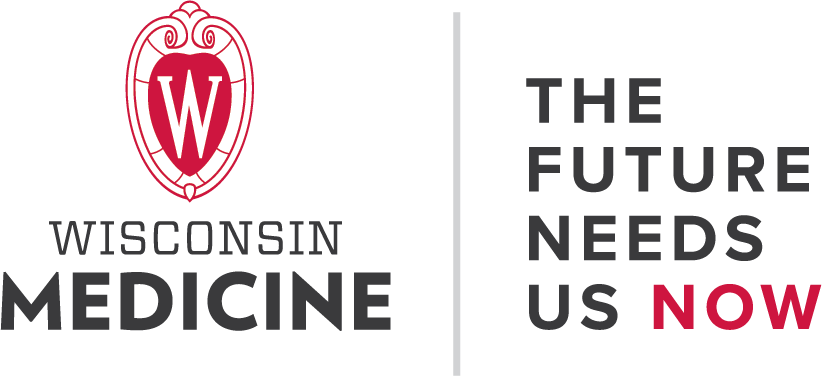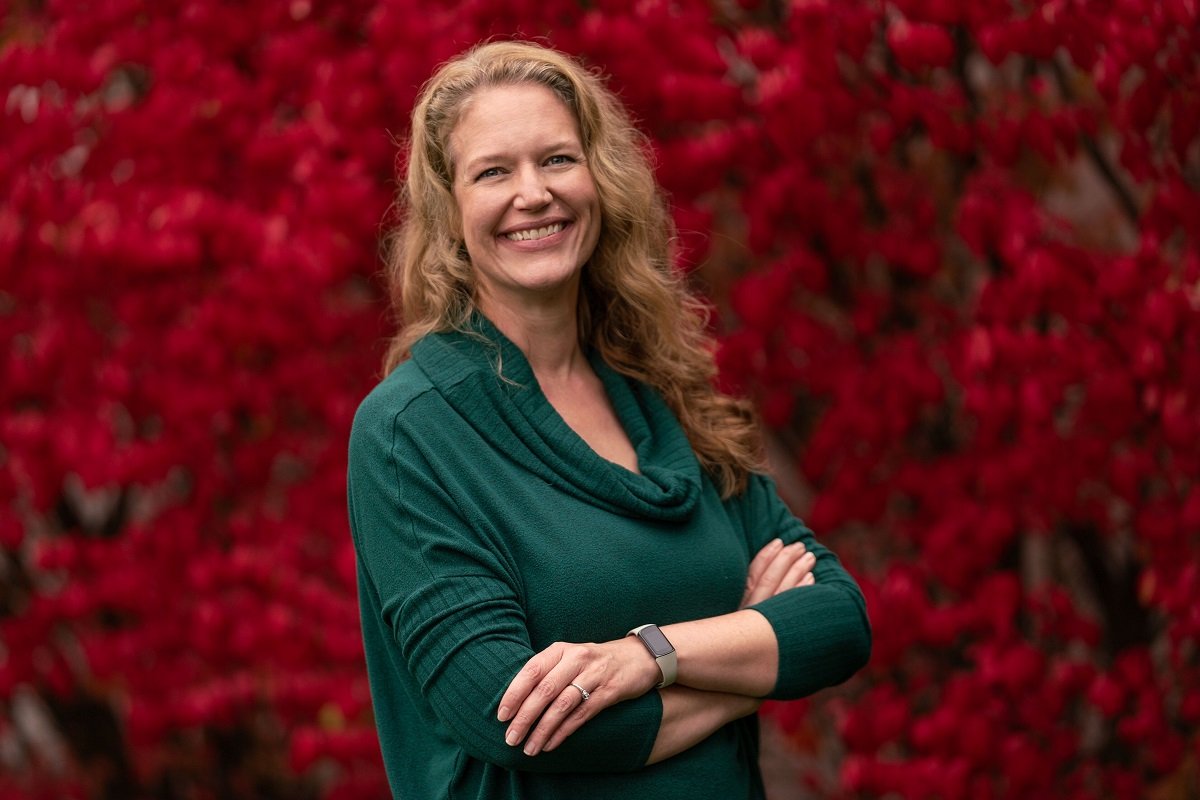
Women’s Health
The Future Needs Us Now
Women Need Us Now
A ray of hope and a commitment to delivering life-changing results to women everywhere. That’s what the experts at UW Health and the UW School of Medicine and Public Health dedicate themselves to every day.
Historically throughout the United States, women’s health has not received the degree of attention, focus, and funding it deserves — so, there’s a greater need for philanthropy now. From maternal health and pelvic floor disorders to ovarian cancer and other serious medical issues, the UW School of Medicine and Public Health and UW Health are investing in the prevention and treatment of women’s health issues with a sense of urgency not found anywhere else.
One of the major goals of the new Eastpark Medical Center is to create a destination for women suffering from complex health issues, such as cancer and pelvic floor disorders. Treatment centers, especially for pelvic floor disorders, are not standard throughout the nation, and the UW School of Medicine and Public Health and UW Health want to address this issue head-on. The Eastpark Medical Center will offer new technologies and expertise focused on continuous research and improving and treating women’s health issues. This is the power of an academic medical institution — combining research, education, and treatment for the betterment of others.
With your support, women can continue to rely on one of the preeminent academic health care institutions in the country to provide seamless, patient-centered, compassionate care and the latest minimally invasive options for all-too-common conditions. Even when women’s health care needs are complex, UW Health brings brighter results.
Wisconsin Medicine is a partnership between world-leading medical institutions UW Health and the UW School of Medicine and Public Health, who have partnered for more than 100 years on innovative treatments, research, education, and compassionate patient care. This powerful combination is in a unique position to usher in a new era through the Wisconsin Medicine campaign.
Gifts are being made through the University of Wisconsin Foundation which raises, invests, and distributes funds for the benefit of Wisconsin Medicine. Learn more.
Make Your Impact
-

Greatest Need Fund
Give women’s health leaders the flexibility to rapidly respond to the most crucial areas of need — in treatment, research, and care — at any moment.
-

Research
Help advance cutting-edge research to detect cancer earlier, discover and develop new treatments, and improve outcomes and quality of life while also supporting research and innovation in women’s pelvic wellness.
-

Eastpark Medical Center
Support the new clinical gateway to outstanding women’s health care. The UW Health Eastpark Medical Center will be emblematic of a new model of women-centered care that meets the needs of those with complex illnesses.
-

Women’s Pelvic Wellness Fund
Advance state-of-the-art management of, and research for, female pelvic floor disorders and urogynecology within the Department of Obstetrics and Gynecology.
Help to make women’s specialty care at the UW Health Eastpark Medical Center a reality. Eastpark represents more than just a building. It’s the physical manifestation of how world-class care will be delivered to patients in the future.
Impact In Action
UW Heath women’s pelvic wellness specialists help Monica get her life back
“If my story inspires people to support and advocate for this care, that’s all I could hope for. Women’s pelvic medicine needs great resources and philanthropy can make a huge difference in so many lives.”
After the delivery of her first baby in 2014, Monica experienced life-altering physical complications. It would take seven years to find Jon Pennycuff, MD, MPH and the specialists at the UW Health Women’s Pelvic Wellness Clinic and to get her life back.
Maintaining Positivity and Purpose
“I’m of a firm mind that positive thinking results in positive outcomes,”
After her vacation was dampened by persistent back pain and other mounting symptoms, Susan Skiles knew something was seriously wrong. Following a successful surgery to remove her ovaries and sections of her large intestine and colon, Skiles decided she wanted to seek treatment elsewhere and focused her sites on UW Health | Carbone Cancer Center. With help from gynecologic cancer expert Dr. Ellen Hartenbach, Skiles recognized that she was exactly where she needed and wanted to be.
Additional Impacts in Action
UW Health and the UW School of Medicine and Public Health have touched so many lives. And each story — from patients and doctors to researchers and students — offers inspiration and a resolve to continue blazing new trails. Check out every amazing story that has us all striving for a healthier tomorrow.
Upcoming Events
Program Highlights
Women’s Health Pride Points
Dr. Lisa Barroilhet and Dr. Manish Patankar have been studying ovarian cancer at UW Carbone Cancer Center for years, and thanks to philanthropic support, they began researching a chemical compound found in ginger, which has led to clinical trials testing a drug called atovaquone to prevent ovarian cancer recurrence.
The Women’s Integrative Sexual Health (WISH) program at UW Carbone Cancer Center helps women maintain positive sexual health after a cancer diagnosis. Especially in the case of gynecologic oncology, WISH provides counseling and ways to minimize discomfort and improve intimacy.
The UW Carbone Cancer Center Survivorship Program specifically studies cancer survivorship in women and all the needs they face.
UnityPoint Health-Meriter Birthing Center, staffed by 23 obstetrician professors and 27 UW Ob-Gyn residents, is now the busiest birthing center in Wisconsin, with more than 5,000 babies delivered in 2021.
UnityPoint Health-Meriter and UW Health work together to ensure that fragile newborns and women with high-risk pregnancies in our region have access to a full team of specialists, the most advanced facilities, and the best possible care to meet their individual needs.
Dr. Kara Hoppe, a maternal-fetal medicine doctor, developed an innovative new way to monitor hypertension in postpartum preeclampsia patients. By sending new mothers home with telemedicine devices to take and report their own blood pressure, she effectively eliminated hospital readmissions — allowing new mothers to stay home with their babies. These telemedicine devices are now also being used to connect new parents with hospital care teams, doulas, lactation consultants, and nurses.
Questions about Women’s Health
Ushering in a new era of medicine and tackling the toughest challenges in health care may leave you as curious as you are excited.
To discover more about planned giving and support for chairs and professorships — and how crucial both are to giving women’s health the attention it deserves — please complete the following contact form. Reach out with any questions or comments about those major efforts or other issues you’d like to discuss. We’d love to continue the conversation about the ways you can help support the health and well-being of women who need it most.
The Future Needs Us Now — the Campaign for Wisconsin Medicine
UW Health and the University of Wisconsin School of Medicine and Public Health are ushering in a new era of medicine — one that builds on breakthroughs to save more lives.




